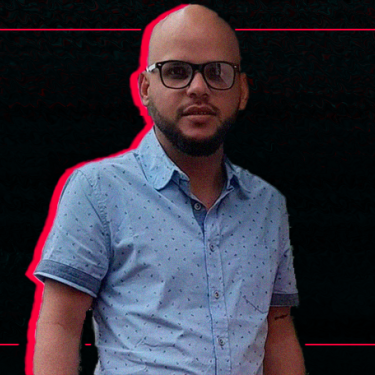Cuba: journalists face escalating harassment under the new Social Communication Law

For the past month, Cuban authorities — namely state security agents and the National Revolutionary Police — have been using the new Social Communication Law to persecute journalists who refuse to align with the regime's narrative. Reporters Without Borders (RSF) strongly condemns this growing wave of intimidation, arbitrary detentions, and harassment, and calls on the international community to pressure the Cuban government to respect the work of journalists.
Since the beginning of October, at least 11 journalists have been summoned by the National Revolutionary Police, interrogated, and forced to resign from their jobs, according to RSF’s information. Many were charged with "propaganda against the government" under the new Social Communication Law — passed in 2023 and implemented on 4 October — which regulates online communication and encourages the repression of dissenting voices. Some have had their professional equipment confiscated during interrogations. All of them were threatened — mostly with imprisonment or harm to their families — if they continued their work. Multiple interrogations were recorded and broadcast on state-controlled media, an additional layer of humiliation. The regime’s tactic of public discrediting is part of a larger strategy to suppress dissent and eliminate independent journalism.
“The Cuban government’s repressive tactics to silence independent journalists, already deeply alarming, have worsened with the new Social Communication Law. The systematic pattern of humiliating interrogations followed by forced public resignations is part of the regime’s deliberate attempt to dismantle any space for free expression. RSF condemns these actions as egregious violations of press freedom and calculated efforts to eliminate independent journalism in Cuba.
These recent incidents of persecution occurred in rapid succession. On 3 October, Yennys Hernández Molina and her wife, Annery Rivera Velasco, freelance journalists, both published Facebook renouncing “collaboration with and/or participation in any media or project of an independent nature and/or considered subversive or contrary to the interests of the Cuban government,” after being interrogated by the National Revolutionary Police. The next day, 4 October, freelance journalist María Lucía Expósito was interrogated for over six hours by state security agents.
On 7 October, three days later, a slew of journalists were targeted. Four directors of local print media affiliated with the press freedom group Instituto Cubano para la Libertad de Expresión y Prensa (ICLEP) — Juan Manuel Moreno Borrego from Amanecer Habanero, Orlidia Barceló Pérez from El Espirituano, Mabel Páez Díaz from El Majadero de Artemisa, and Antonio Suárez Fonticine from Páginas Villareñas — were all interrogated and threatened into ceasing their journalistic activities. In addition, freelance journalist Yadira Álvarez Betancourt, who had previously been interrogated and forced to resign, was subjected to further humiliation as the National Revolutionary Police forced Betancourt to retract the very same public statement of resignation that they had pressured her to make.
The next day, 8 October, Lucy G. Morell, a photographer and documentary filmaker working with the non-profit media outlet Periodismo de Barrio, was summoned and interrogated by state security agents and forced to publicly resign. The day after, 9 October, Adriana Normand, a freelance journalist for digital media such as Hypermedia Magazine and El Toque, was forced to resign, and José Luis Tan Estrada, a freelance journalist who worked for outlets like the digital media Cubanet, was summoned by the National Revolutionary Police, who threatened him with charges under the Social Communication Law.
Year after year, Cuba remains one of the lowest-ranking countries in Latin America on RSF’s World Press Freedom Index due to the government’s tight control over all media, carried out through severe legal restrictions and the constant harassment of journalists.
